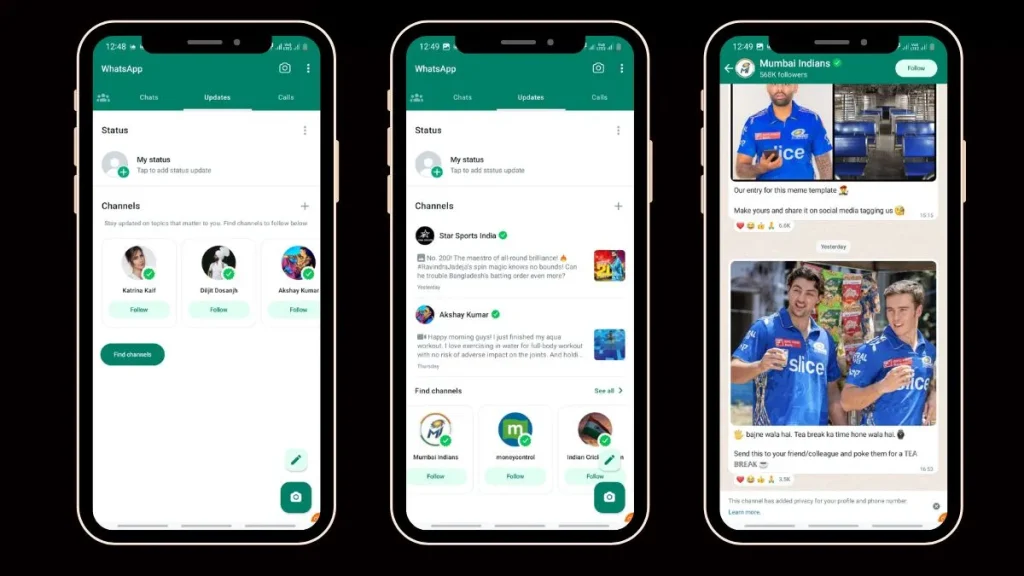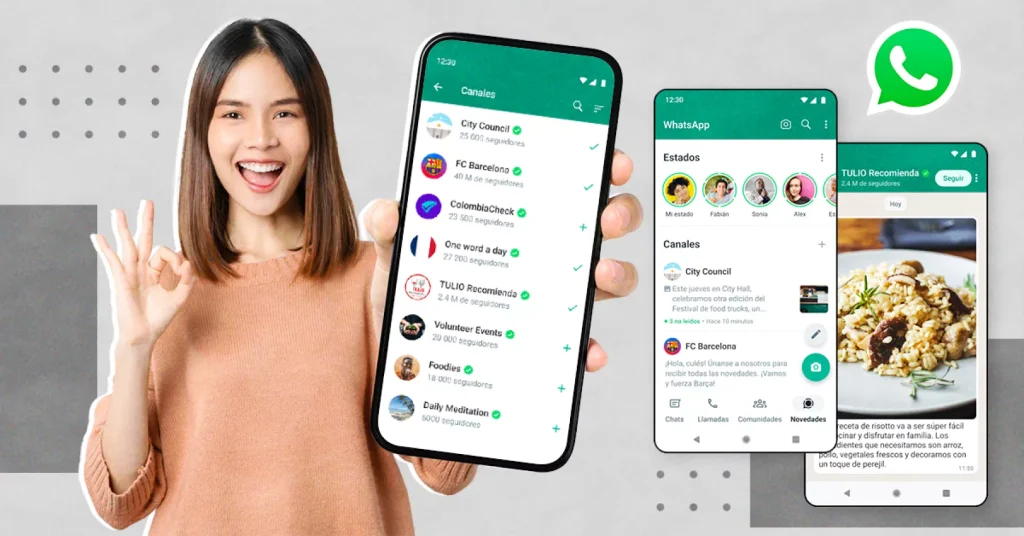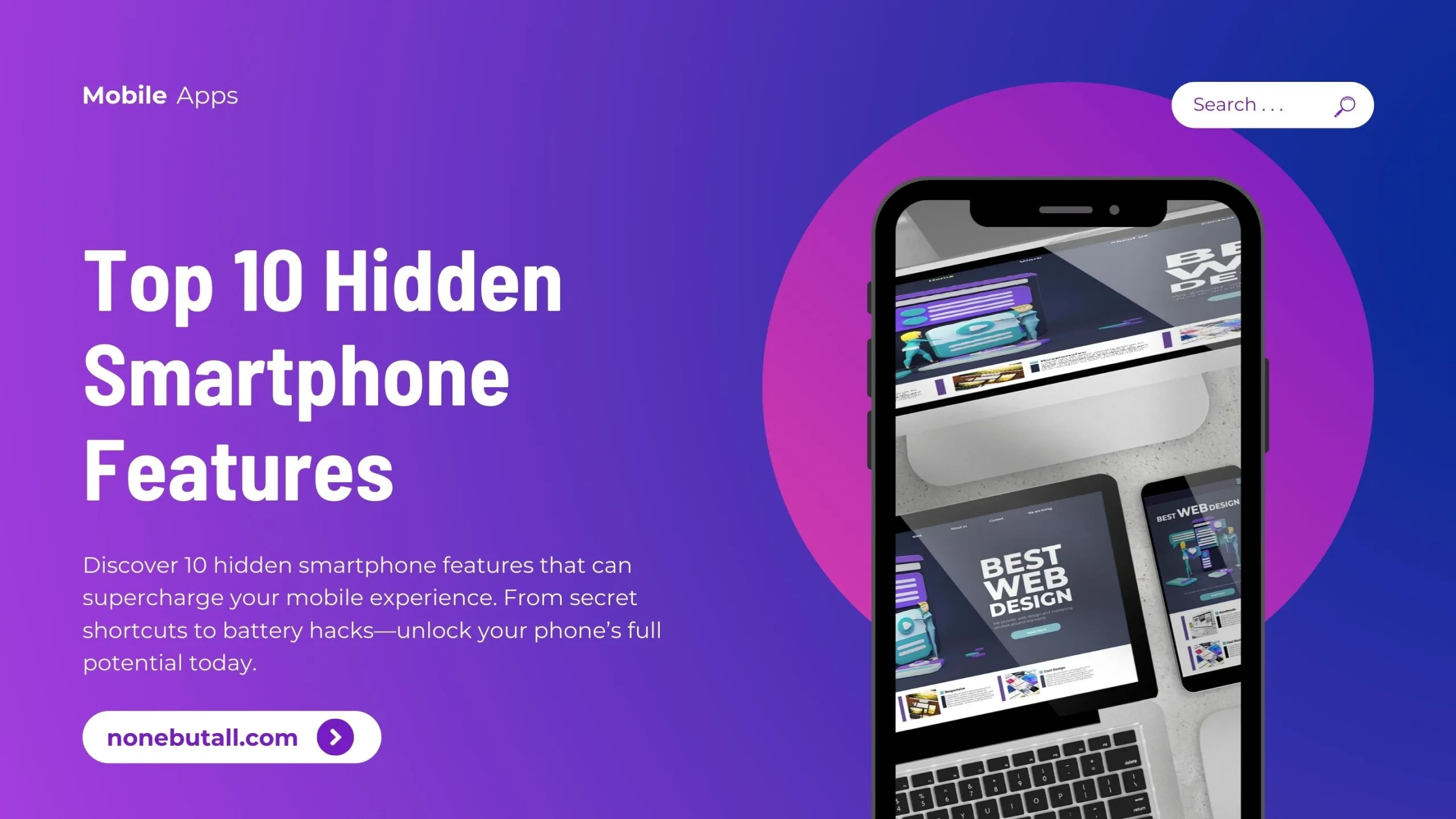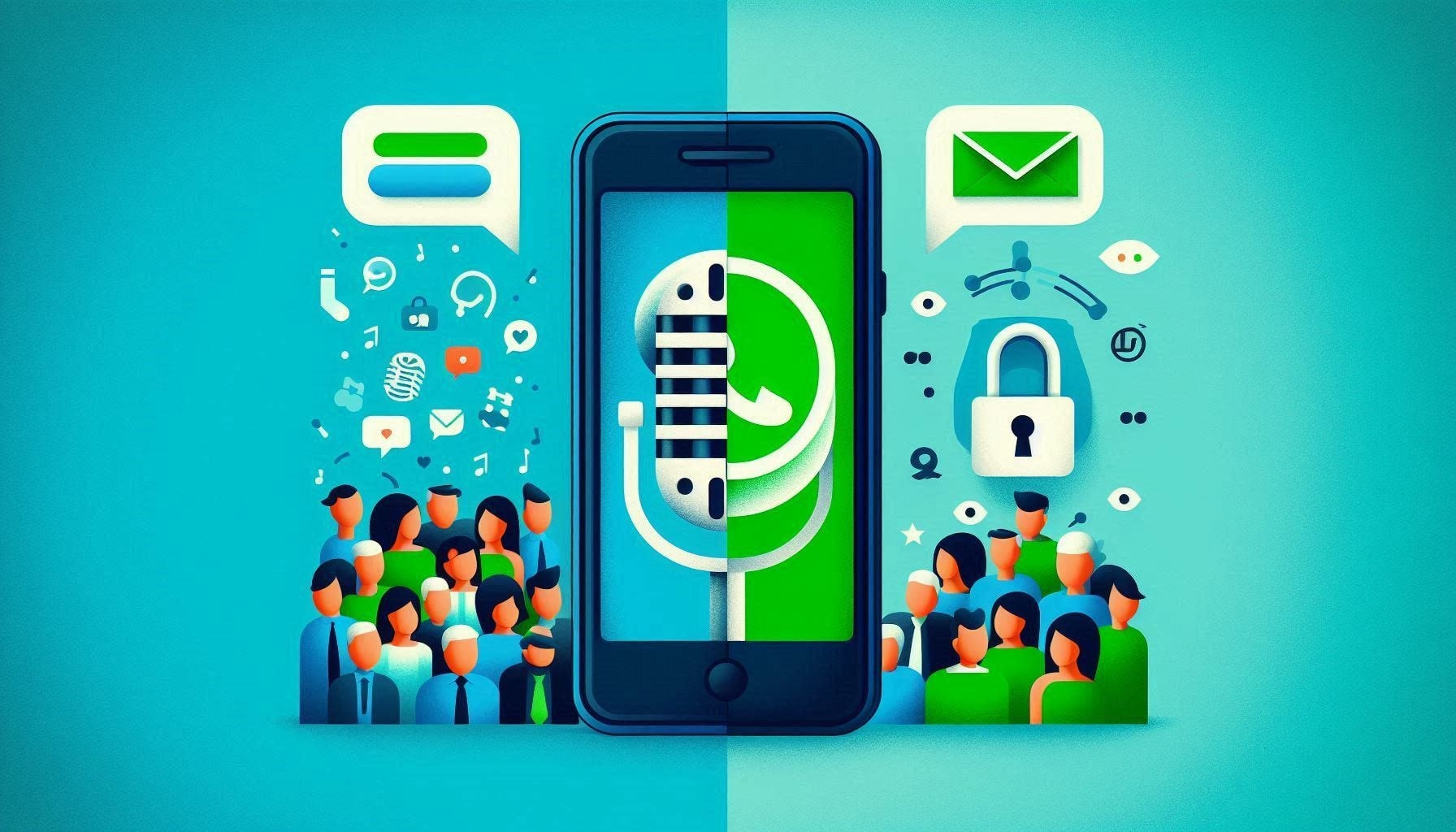WhatsApp Channels - Provide businesses with a direct and personalized platform to connect
”🚀 Elevate your business communication with WhatsApp Channels! 📱💬 Create a dedicated channel, share multimedia content, and engage with your audience in real time. Discover the power of direct, personalized interactions. #WhatsAppChannels #BusinessCommunication”
WhatsApp Channels allow users to receive updates from individuals, organizations, and teams they follow.
In a world inundated with communication channels, WhatsApp Channels stand out as a beacon of direct and personalized interaction. Businesses can capture attention by highlighting the immediacy and familiarity of WhatsApp, creating a direct line to customers that transcends the clutter of traditional marketing.
Dive into the unique features and capabilities that set WhatsApp Channels apart. Showcase the multimedia-sharing options, document-sharing capabilities, and the potential for real-time, two-way communication.
Demonstrate how businesses can utilize these features to captivate their audience, fostering genuine interest in the platform’s dynamic and engaging nature.
Paint a picture of the benefits businesses can reap by incorporating WhatsApp Channels into their communication strategy. Highlight the potential for enhanced customer engagement, personalized interactions, and the establishment of a trustworthy and accessible brand presence.
Showcase success stories and testimonials from businesses that have seen significant improvements by leveraging WhatsApp Channels.
Conclude by encouraging businesses to take the next step. Provide a clear call to action, such as guiding them through the process of setting up a WhatsApp Channel, integrating the WhatsApp Business API, or exploring innovative ways to leverage the platform.
Emphasize that the time to embrace WhatsApp Channels is now, as businesses can unlock a new realm of communication possibilities and stay ahead in the competitive landscape.
”🔗 Unlock the potential of WhatsApp Channels for seamless customer engagement. 🌐 Share documents, set up automated responses, and build lasting connections. It’s not just messaging; it’s a conversation. 🗨️ #WhatsApp #CustomerEngagement”
How to Set Up WhatsApp Channels:

Setting up and utilizing WhatsApp Channels for business involves several steps. Below is a comprehensive guide to help businesses establish and optimize their presence on WhatsApp Channels:
1. Create a WhatsApp Business Account:
-
Download and install the WhatsApp Business app or use the WhatsApp Business API for larger-scale operations.
-
Sign up with a dedicated business phone number to separate personal and business communication.
2. Set Up a Business Profile:
-
Create a business profile with essential information such as business name, address, business hours, and a brief description.
-
Upload a professional profile picture and a cover photo to enhance brand visibility.
3. Explore WhatsApp Business Settings:
-
Configure business settings, including privacy options, message templates, and automated responses.
-
Customize notification preferences to manage alerts for incoming messages.
4. Promote Your WhatsApp Business Number:
-
Promote your WhatsApp business number on various channels, such as your website, social media, and marketing materials.
-
Encourage customers to reach out via WhatsApp for inquiries and support.
5. Engage with Customers:
-
Start engaging with customers through one-on-one chats to build rapport and address queries.
-
Utilize multimedia sharing to enhance communication with images, videos, and documents.
6. Create WhatsApp Broadcast Lists:
-
Group your contacts into broadcast lists for targeted messaging.
-
Use broadcast lists for sending updates, promotions, or announcements to specific customer segments.
7. Explore WhatsApp Business API (Optional):
-
For larger businesses, explore the WhatsApp Business API for advanced features and automation.
-
Integrate the API with your CRM system for seamless communication and data management.
8. Implement Automation:
-
Set up automated responses for common queries using quick replies and message templates.
-
Explore the use of chatbots to handle routine interactions and provide instant responses.
9. Enable Transactional Messaging:
-
Utilize WhatsApp Channels for transactional messaging, such as order confirmations, shipping updates, and appointment reminders.
-
Ensure compliance with WhatsApp’s policies regarding transactional messages.
10. Monitor Analytics and Insights:
-
Use WhatsApp Business tools to monitor message metrics, including delivery and read receipts.
-
Analyze customer interaction patterns and adjust your strategy based on insights.
11. Promote Privacy and Security:
-
Emphasize your commitment to privacy by respecting end-to-end encryption.
-
Communicate your privacy policy to build trust with customers.
12. Stay Updated with WhatsApp Changes:
-
Regularly check for updates and new features on WhatsApp Business.
-
Stay informed about any changes in policies or guidelines.
13. Seek Customer Feedback:
-
Encourage customers to provide feedback on their WhatsApp experience.
-
Use feedback to continuously improve your WhatsApp communication strategy.

”💡 Did you know? WhatsApp Channels let you create dedicated business profiles, share multimedia, and engage with customers in real-time. Elevate your customer experience and build lasting connections. 🚀💬 #BusinessMessaging #WhatsApp”
Main Features of WhatsApp Channels:
WhatsApp Channels offer businesses a powerful platform for engaging with their audience in a direct and personalized manner. Here are some of the main features that make WhatsApp Channels a valuable tool for business communication:
-
Businesses can create dedicated WhatsApp Channels, providing a distinct and professional identity for customer interactions.
-
A separate business profile enhances brand visibility and allows customers to easily identify and connect with the business.
-
WhatsApp Channels support the sharing of multimedia content, including images, videos, and audio files.
-
Businesses can use rich media to convey information, showcase products, and create engaging content for their audience.
-
The platform enables businesses to share documents such as PDFs, brochures, menus, and other informational materials directly through the chat interface.
-
This feature facilitates the seamless exchange of information between businesses and customers.
-
WhatsApp Channels provide real-time, two-way communication, allowing businesses to respond promptly to customer queries and feedback.
-
Instantaneous interaction enhances customer satisfaction and fosters a sense of trust and reliability.
-
Businesses can leverage the WhatsApp Business API to set up automated responses for frequently asked questions and routine queries.
-
Automation streamlines communication reduces response times, and improves overall operational efficiency.
-
WhatsApp Channels support transactional messaging, enabling businesses to send order updates, appointment reminders, and other transaction-related information.
-
This feature is particularly useful for e-commerce, service-oriented businesses, and organizations with transactional interactions.
-
WhatsApp Channels can be integrated with Customer Relationship Management (CRM) systems, allowing businesses to manage customer interactions seamlessly.
-
Integration ensures that customer data is synchronized across platforms, providing a holistic view of customer interactions.
-
Businesses can personalize messages based on customer preferences, purchase history, and interaction patterns.
-
Targeted messaging helps businesses tailor their communication to specific customer segments, enhancing the relevance of their content.
-
WhatsApp Channels prioritize security with end-to-end encryption, ensuring that messages exchanged between businesses and customers remain private and secure.
-
The commitment to privacy helps build trust and credibility with users.
-
Businesses can create broadcast lists to send messages to multiple contacts at once.
-
This feature is useful for sending announcements, updates, or promotions to a specific audience without creating a group chat.

”🌐 Connect, engage, and thrive with WhatsApp Channels! 🚀 Elevate your brand communication with direct messaging, multimedia sharing, and personalized interactions. Your audience is waiting—start chatting! 💬💼 #BusinessCommunication #WhatsAppChannels”

Top 10 Hidden Smartphone Features You’re Not Using (But Should Be) – Boost Your Mobile Experience Today
Top 10 Hidden Smartphone Features You’re Not Using (But Should Be) – Boost Your Mobile Experience Today

Top 10 Tips of Pro level smartphone photography : Turn Your Smartphone Into a Pro Camera
Top 10 Tips of Pro level smartphone photography : Turn Your Smartphone Into a Pro Camera

The 10 Common Behaviors That Damage Your Phone
The 10 Common Behaviors That Damage Your Phone
